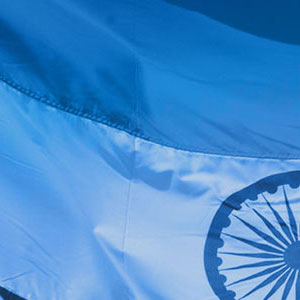Building India U.S. Relations
A Partnership for the 21st Century
This op-ed by Harshavardhan Neotia (President Elect and Senior Vice President, Federaton of Indian Chambers of Commerce and Industry) discusses a visit by FICCI’s Forum of Parliamentarians to the United States in October of 2015.
India-U.S. relations have entered a phase of renewed enthusiasm and momentum over the past several years. President Barack Obama’s visit to India this year—his second as head of state—followed by the conclusion of the U.S.-India Strategic and Commercial Dialogue, stand as testimonials to the fact that this relationship extends beyond traditional governmental interactions. The partnership between the nations, described by Indian prime minster Narendra Modi as one of “natural allies” is multifaceted, encompassing people-to-people connections, business-to-business relations, and government-to-government ties.
There have been substantial efforts by both sides to further expand bilateral economic and commercial relations in particular. The United States and India Trade Policy Forum held in October 2015, for instance, aimed to shape forward-looking policy initiatives in intellectual property, manufacturing, agriculture, and services that can expand trade and investment. If successfully implemented, these measures stand to benefit manufacturers, workers, innovators, service providers, farmers, and ranchers. Perhaps the most significant and potentially rewarding measure on the table is a bilateral investment treaty (BIT), recent discussions of which have been characterized by increasing emphasis and urgency.
Despite the breadth of economic discussions and the enthusiasm surrounding them, from an industry perspective, it is evident that some potential areas for progress are being overlooked. Education, energy, and technology transfer are all areas for major improvement in India—and areas in which U.S. expertise could help India harness its latent potential.
The Indian government has put particular emphasis on increasing FDI in sectors like manufacturing, defense, smart cities, and clean technology in the spirit of initiatives like “Make in India” and “Digital India.” However, American investors are still hesitant due to concerns over market access, transparency, and issues of intellectual property rights and standards. In order to further bolster the economic relationship, visa restrictions and double taxation also need to be addressed in a manner amenable to both parties. Both the Indian and U.S. governments acknowledge that forward movement on a BIT is especially critical to strengthening the Indo-U.S. economic relationship. To this end, India shared a draft BIT with the United States during the October 2015 Trade Policy Forum, which is an important step in the right direction.
With this increasing emphasis on bilateral economic endeavors, Track 2 diplomacy plays a critical role in furthering Indo-U.S. relations. These efforts open the space for frank interactions involving lawmakers who deal with policy implementation and effects on the ground, rather than confining the discussion to executors who create policy at the top. The lawmakers are then able to share the products of their discussions with their colleagues and help support further U.S.-India cooperation on various levels. FICCI’s Forum of Parliamentarians visit to the United States, which took place in October, provided an opportunity for this kind of expanded engagement between India and the United States. The program fostered meaningful interactions between Indian policymakers and American public and private sector representatives, thus supplementing the formal diplomatic process.
The parliamentarians participated in a full week of engagements in the cities of New York and Washington, D.C., interacting with elected U.S. government officials, think tank scholars, policymakers, industry representatives, media, and the Indian-American community. Attendees participated in frank and open exchanges of ideas concerning the primary challenges and opportunities shaping India-U.S. relations. More detailed information on this program can be accessed at FICCI’s website.
This program echoed India’s increasingly active and prominent role at multilateral forums and reflects an effort to move the India-U.S. relationship from a primarily bilateral context to a global, multilateral framework. As India’s bid for a permanent seat on the UN Security Council gains traction and its influence in the World Trade Organization grows—as evidenced by its nearly single-handed delay of the critical Trade Facilitation Agreement in August 2014, the need to increase India’s global economic engagement becomes more critical.
In support of this effort, FICCI’s Forum of Parliamentarians delegation visited the headquarters of the World Bank in Washington, D.C., and the United Nations in New York. World Bank officials discussed how lawmakers and private citizens can engage with the bank’s local work through the Open India initiative. India’s ambassador to the UN informed the parliamentarians on how the new sustainable development goals will target the goal of eradicating poverty in India.
Outside of the intergovernmental framework, the private sector plays a significant role in India-U.S. relations as well. During the October forum, the parliamentarians met with American and Indian industry representatives and members of the Indian diaspora in business and academia through the U.S.-India Business Council, Indiaspora, and the American India Foundation. These interactions produced policy suggestions such as forward movement on a BIT, improvement in perceptions of ease of doing business with reformed labor laws in India, and Indian inclusion in more multilateral trade organizations like APEC.
India-U.S. relations stand at a historic juncture today. New avenues for cooperation have emerged on issues such as access to pharmaceuticals, transparency on trade secrets, and copyright cooperation, particularly with respect to the two biggest entertainment industries in the world. The trajectory of India-U.S. diplomacy is encouraging, and Track 2 diplomatic efforts such as FICCI’s Forum of Parliamentarians will go a long way to produce more informed actors on both sides and promote stronger relations between the two nations.
Harshavardhan Neotia is President Elect and Senior Vice President, Federation of Indian Chambers of Commerce and Industry (FICCI).


